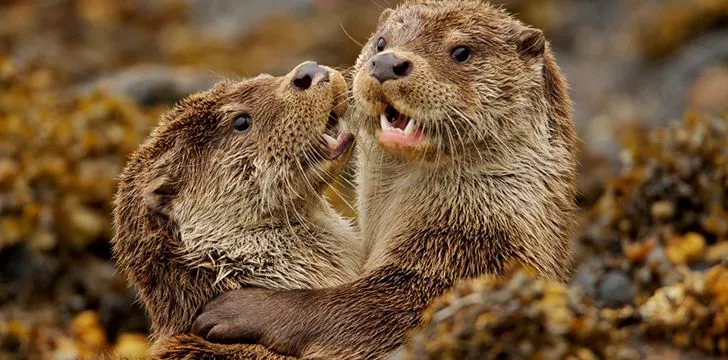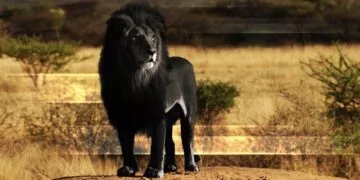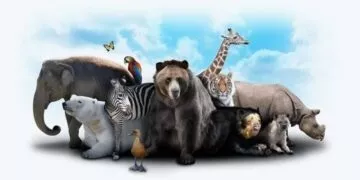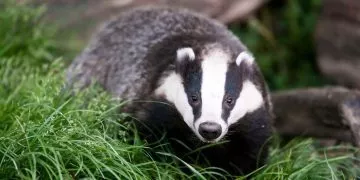Otters are the dogs of the water world, so it’s no small wonder that we humans have such affection for them. They’re cute, they’re fuzzy and easily photogenic!
These adorable little guys have long, streamlined bodies that are just made for being in the water.
They’re actually part of the weasel family, but they’re the only ones that swim!
So what is it about otters that make them so otterly amazing? Let’s take a closer look here with these 15 otter facts!
Otters have the densest fur of the animal kingdom.
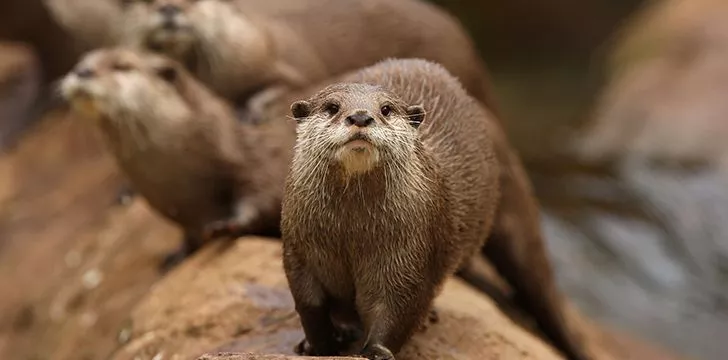
Otters spend a large amount of time in the water, yet they still have fur.
To ensure that they stay dry they must spend a significant portion of the day grooming themselves, coating their fur in saliva.
This process actually makes the outer layer waterproof. This is possible because their fur is so dense, with around a million hairs per square inch.
Otters can be found all over the world.
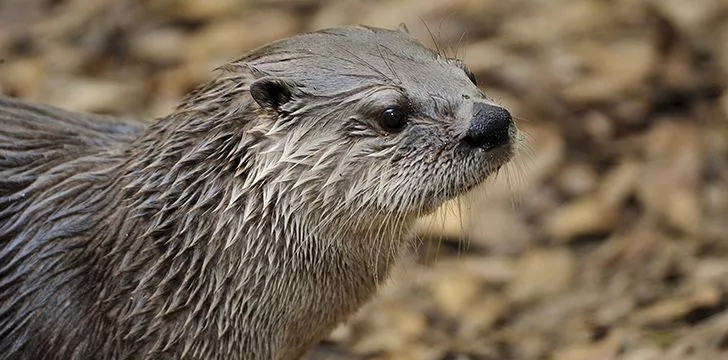
Otters can be found in unpolluted waters all over the world in marshland, freshwater rivers, lakes, oceans, and coastlines.
There are 13 known species of otters, which range in size from 2.9 feet (90 cm) all the way to 5.9 feet (1.8 m) long!
Otters are expert hunters.
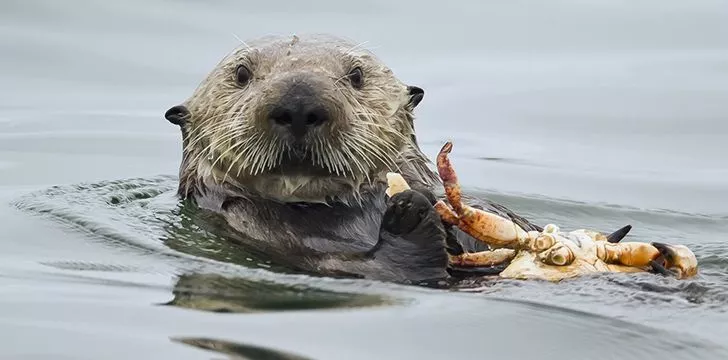
Otters are known to be pretty incredible hunters, living off a diet of mostly seafood.
While river otters mostly live off fish, crayfish, and crabs, sea otters have a more interesting method of sustaining themselves.
Sea otters are known for their remarkable ability to use rocks to smash open shellfish to fill their stomachs.
The majority of otters spend most of their time on land.
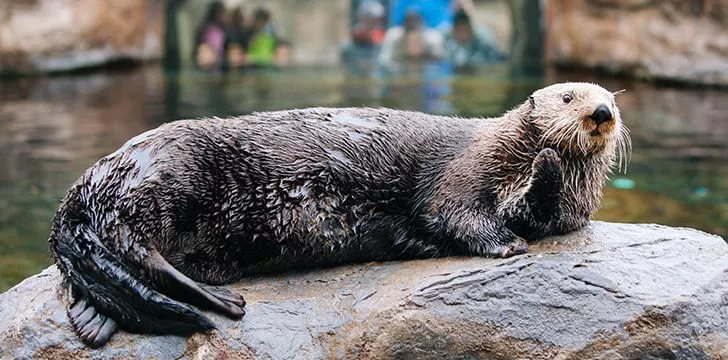
Most species of otters actually spend their time on the banks of rivers and other bodies of water when they’re not hunting.
Sea otters though, are the complete opposite.
They may sometimes come to shore, but they spend the majority of time in the water, hanging around kelp forests.
Not all otters eat seafood.
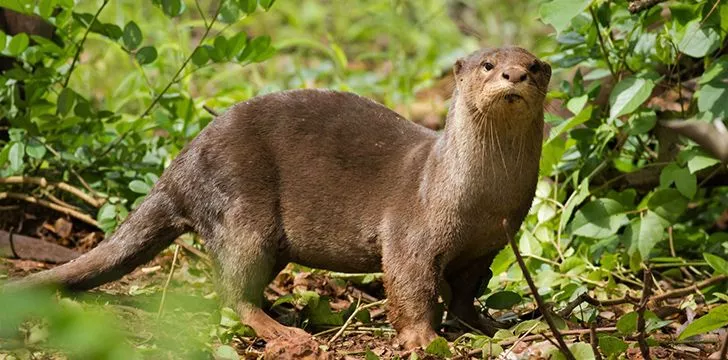
In a bizarre turn away from their normal diet, there are some otters in the Shetland Islands in Scotland which have been known to hunt rabbits instead of fish.
Let’s hope they don’t develop a taste for people!
Otter poop has the strangest smell.
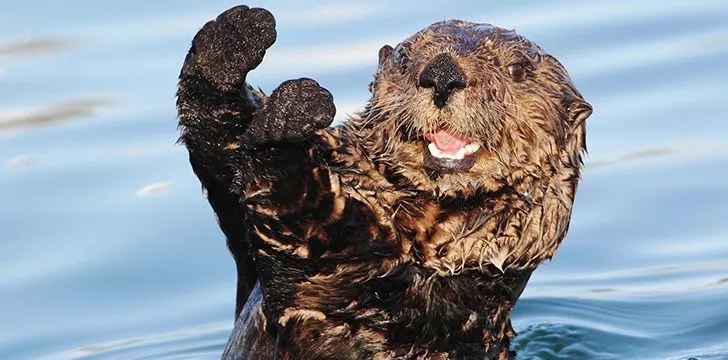
Otter poop has such a unique smell that it has even ended up with its own name – spraint.
Some say it’s the least offensive smelling poo of the animal kingdom, while others say it’s the absolute worst.
Scientists say that its smell is like that of violets.
Otters are very social animals.
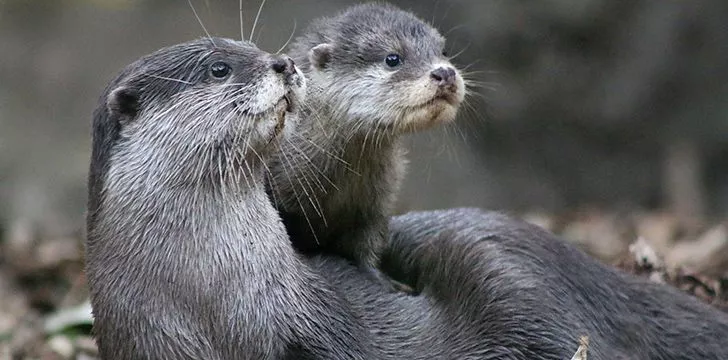
Otters are usually found in small family groups with the mother and her young offspring.
During mating season, or when there’s an abundance of food you’ll find much larger groups of otters.
No matter the size of the group though, you’ll always find them playing around, wrestling, chasing their tails and having an otterly great time.
Otters are raised by their mothers.
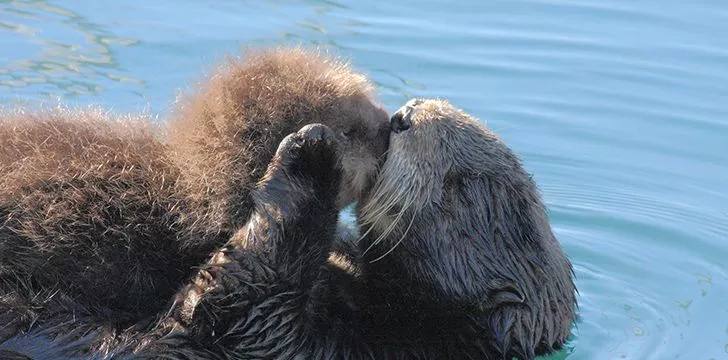
Otters are born with their eyes closed, and as soon as they open they have a lot to learn like swimming and hunting.
The father is usually chased away soon after a litter is born though, and the mother takes care of them until they’re about a year old.
Otters and humans sometimes work together.
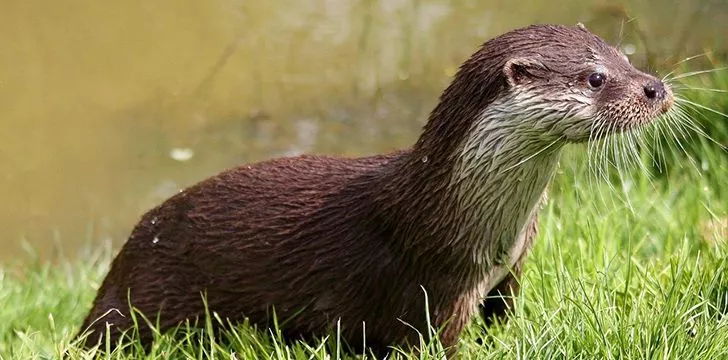
Historically otters have been used by humans to aid in the process of fishing all over the world.
Nowadays this technique is still practiced in Bangladesh, where trained otters are used to chase fish into fishing nets.
Sea otters hold hands when they sleep.
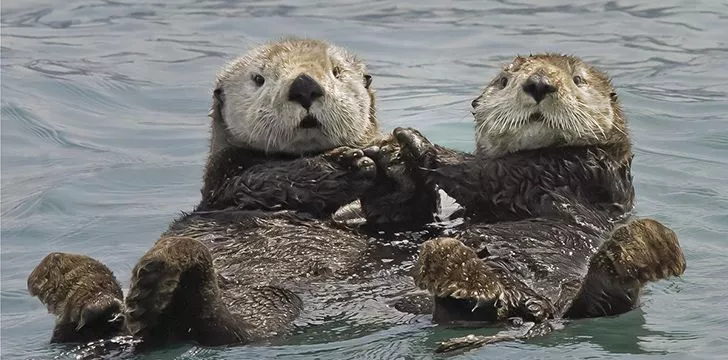
These otters don’t just do this to be incredibly adorable though.
It’s quite common for a mother and her pup to hold each other’s hands so that they don’t drift away from each other while they sleep.
Sea otters also hold onto kelp that grows from the floor of the sea for the same purpose.
River otters rarely make their own homes.
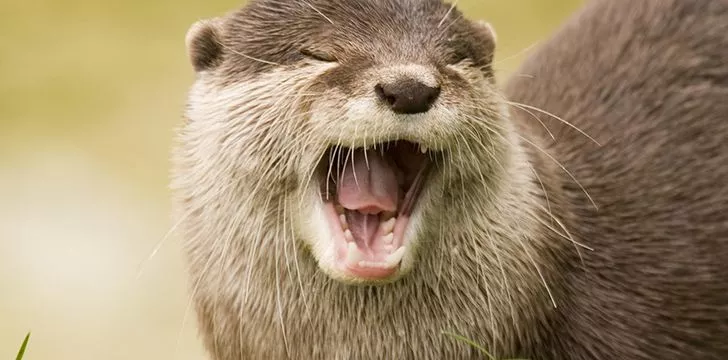
Otters? More like squatters! River otters are much more likely to take another animal’s home instead of building their own.
While this usually happens after the previous animal has moved out, they are known to move into beavers dams while they’re still using them!
There’s a surprisingly large amount of names used to describe otters.
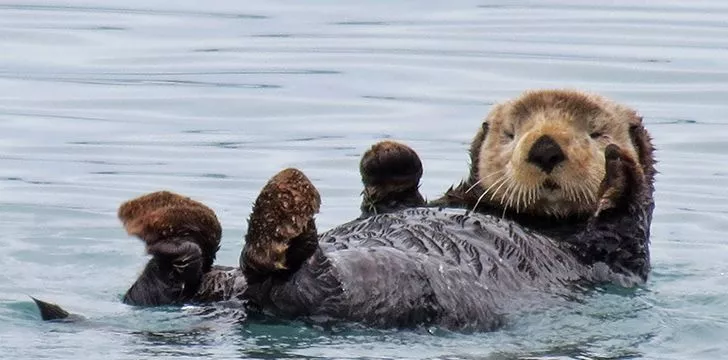
When otters are born they can either be called pups or kittens.
Female otters can be called sows or bitches, and male otters can be called boars or dogs.
Confusing much?
There’s also no single collective noun for them – if there’s a group of otters on the water they are called a raft, but if they’re on land they can be called a bevy, family, romp, or lodge!
Otters can hold their breath for a really long time.
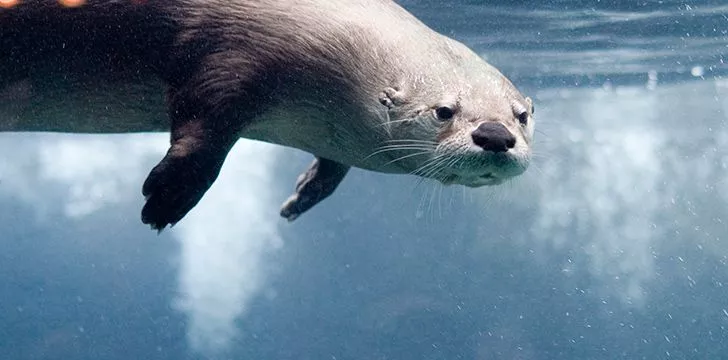
Otters, like humans, are mammals. This means that we do not have the ability to breathe underwater.
You’d think this would pose a problem for a species which spends the majority of its time either in water, or hunting in water, but apparently not!
Sea otters can hold their breather underwater for more than 5 minutes, and river otters can hold theirs for more than 8!
Otters eat 15-20 percent of their bodyweight daily.
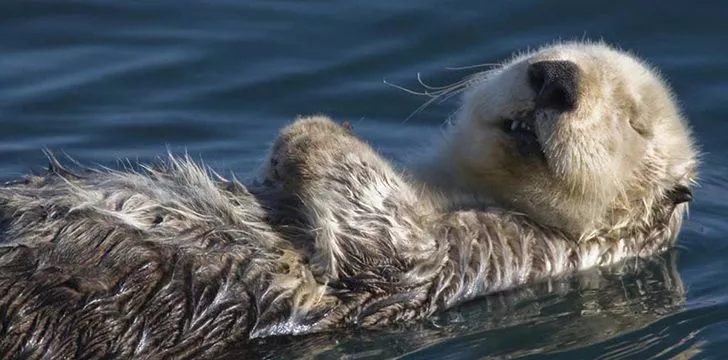
Otters have to eat vast amounts of food every day, which takes up a significant portion of their time.
It’s key to their survival to eat such great quantities, especially for sea otters, as they use up so much energy keeping themselves warm.
Many otter species are at risk of becoming extinct.
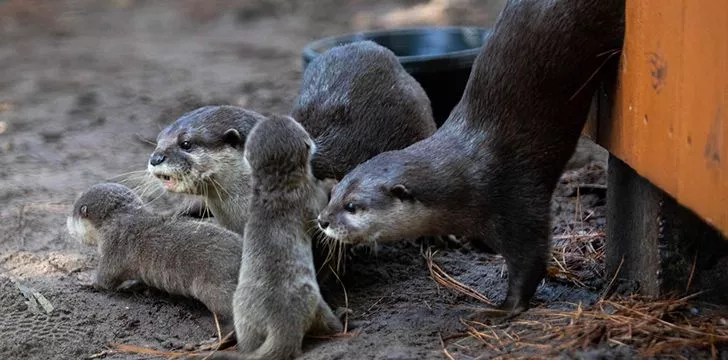
A lot of species of otters were once at risk of becoming extinct due to their highly sought-after fur.
While the practice of hunting otters is no longer a common practice, they’re still at risk.
Otters survive by hunting, and as such they live in unpolluted waters.
As the world becomes more and more polluted otter populations become more and more at risk.
There are so many cool facts about otters that it’s no small wonder they’ve become a bit of an internet sensation.
They’re incredibly adorable, playing around with each other all the time and seeming to not have a care in the world.
These fuzzy little guys are unfortunately at risk though, so if you’re feeling inspired by these facts go and read more into them, and see what you can do to help!

